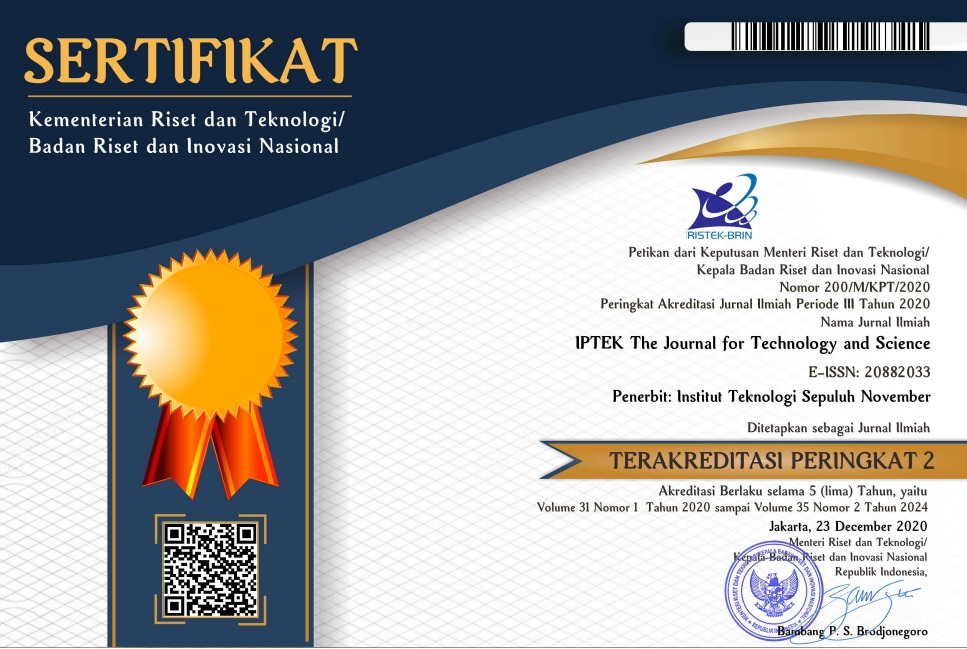Comparison Of KNN, Random Forest, And F-PSO Algorithms On Simple Feature Scaling for Agility Level Classification
Abstract
Keywords
Full Text:
Full TextReferences
Csalódi R, Süle Z, Jaskó S, Holczinger T, Abonyi J. Industry 4.0-Driven Development of Optimization Algorithms: A
Systematic Overview. Hindawi Limited 2021;p. 6621235.
Arshanty RA, Sa’adah U, Sari DIP, Rasyid MBA. Pengembangan Aplikasi People Management dalam Software Development
dengan Pendekatan Project Management Antipatterns. Jurnal Nasional Teknik Elektro dan Teknologi Informasi 2020
December;9(4):343–353.
Gilal AR, Jaafar J, Omar M, Basri S, Waqas A. A rule-based model for software development team composition: Team
leader role with personality types and gender classification. Inf Softw Technol 2016 June;74:105–113.
Eilers K, Peters C, Leimeister JM. Why the agile mindset matters. Technol Forecast Soc Change 2022 June;179.
Xie X, Wang B, Yang X. SoftRec: Multi-relationship fused software developer recommendation. Applied Sciences
(Switzerland) 2020 June;10(12):1–20.
Settas D, Meditskos G, Bassiliades N, Stamelos IG. Detecting antipatterns using a web-based collaborative antipattern
ontology knowledge base. In: Lecture Notes in Business Information Processing, Verlag Springer; 2011.p. 478–488.
Russo D, Stol KJ. Gender Differences in Personality Traits of Software Engineers. IEEE Transactions on Software
Engineering 2022 March;48(3):819–834.
Purwaningsih I, Widodo S, Harini E, Kusumaningrum B, Putrianti G, Muanifah M. Adaptation Measuring Instrument
Keyrsey Temperament Sorter. In: The 1st International Conference on Science and Technology for an Internet of Things
Yogyakarta, Indonesia; 2019. p. 1–6.
Sotarjua LM, Santoso DB, Waluyo UHSKJR, Timur KT, Karawang K, Barat J. Perbandingan Algoritma Knn, Decision
Tree,*Dan Random*Forest Pada Data Imbalanced Class Untuk Klasifikasi Promosi Karyawan (Comparison of Knn, Decision
Tree, *And Random*Forest Algorithms on Imbalanced Class Data for Employee Promotion Classification). Jurnal
INSTEK (Informatika Sains dan Teknologi) 2022;7(2).
Yilmaz M, O’Connor RV. Understanding personality differences in software organizations using Keirsey temperament
sorter. IET Software 2015;9(5):129–134.
Settas D, Stamelos I. 8. In: Lee R, editor. Resolving Complexity and Interdependence in Software Project Management
Antipatterns Using the Dependency Structure Matrix Berlin, Heidelberg: Springer Berlin Heidelberg; 2008. p. 205–217.
https://doi.org/10.1007/978-3-540-70561-1_15.
Picha P, Brada P. Software process anti-pattern detection in project data. In: ACM International Conference Proceeding
Series, Association for Computing Machinery New York, NY, USA; 2019. p. 1–12.
Zhu H, Zhou MC, Seguin P. Supporting software development with roles. IEEE Transactions on Systems, Man, and
Cybernetics Part A:Systems and Humans 2006 November;36(6):1110–1123.
Ahmed F, Capretz LF, Bouktif S, Campbell P. Soft skills and software development: A reflection from software industry.
International Journal of Information Processing and Management 2013;4(3):171–191.
Akarsu Z, Orgun P, Dinc H, Gunyel B, Yilmaz M. Assessing Personality Traits in a Large Scale Software Development
Company: Exploratory Industrial Case Study. In: Systems, Software and Services Process Improvement Cham: Springer
International Publishing; 2019. p. 192–206.
Neill CJ. Antipatterns in Systems Engineering: An Opening Trio. INCOSE International Symposium 2012;22(1):1233–
Gilal R, Omar M, Gilal AR, Rejab MM, Waqas A, Sharif KIM. Can time pressure and personality make any sense
together in software engineering? International Journal of Innovative Technology and Exploring Engineering 2019
November;9(1):1071–1075.
Lima ACES, Castro LND. Tecla: A temperament and psychological type prediction framework from Twitter data. PLoS
One 2019 March;14(3).
Putra N, Saputra ID. Metode Fuzzy untuk Mengidentifikasi Kepribadian Siswa. Jurnal Sistim Informasi dan Teknologi
September;p. 136–142.
Trujillo-Dalbey F. Managing intercultural conflict effectively: Stella Ting-Toomey and John G. Oetzel, Sage Publications,
Thousand Oaks, CA, 2001, 233 pages. International Journal of Intercultural Relations 2002;26(3):334–337. https://www.
sciencedirect.com/science/article/pii/S0147176702000093.
Dorigo M, Gambardella LM. Ant colony system: a cooperative learning approach to the traveling salesman problem. IEEE
Transactions on Evolutionary Computation 1997;1(1):53–66.
Arcelli D, Cortellessa V, Trubiani C. Performance-based software model refactoring in fuzzy contexts. In: Lecture Notes
in Computer Science (including subseries Lecture Notes in Artificial Intelligence and Lecture Notes in Bioinformatics),
Verlag Springer; 2015.p. 149–164.
R Chi Y. xin Su. D hong Zhang, X xin Chi, and H jun Zhang, “A hybridization of cuckoo search and particle swarm
optimization for solving optimization problems, ” Neural Comput Appl 2019 January;31:653–670.
Putra I. Optimasi Proses Etl Dengan Metode Heuristik Untuk Membangun Data Warehouse (ETL Process Optimization
Using Heuristic Methods to Build a Data Warehouse). JST (Jurnal Sains dan Teknologi) 2019 July;8:35.
Mamur H, ÜstünerMA, BhuiyanMRA. Future perspective and current situation of maximum power point tracking methods
in thermoelectric generators. Sustainable Energy Technologies and Assessments 2022;50:101824.
Hidalgo ES. Adapting the scrum framework for agile project management in science: case study of a distributed research
initiative. Heliyon 2019 3;5:1–31.
Hazzan O, Dubinsky Y. The Agile Manifesto. Cham: Springer International Publishing; 2014. https://doi.org/10.1007/
-3-319-10157-6_3.
Wang K. Computational Intelligence in Agile Manufacturing Engineering. pp 2001;p. 297–315.
Hill GM. The complete project management office handbook. 2 ed. New York, USA: Auerbach Publications; 2004.
Kazançoğlu Y, Sağnak M. Integrated Fuzzy Analytic Network Process And 0-1 Goal Programming Technique For
Enterprise Resource Planning (Erp) Software Selection. Ege Akademik Bakis (Ege Academic Review) 2019 January;19(1).
Vaishnavi V, Suresh M. Assessing the Readiness Level of Healthcare for Implementing Agility Using Fuzzy Logic
Approach. Global Journal of Flexible Systems Management 2020 June;21(2):163–189.
Kakar A. A Rhetorical Analysis of the Agile Manifesto on its 20th Anniversary. Journal of the Southern Association for
Information Systems 2023 February;10(1):20–29.
Alsalibi B, Mirjalili S, L Abualigah R. I. yahya, and A. “A Comprehensive Survey on the Recent Variants and Applications
of Membrane-Inspired Evolutionary Algorithms, ” Aug. 01, Springer Science and Business Media B. V: H. Gandomi; 2022.
DOI: http://dx.doi.org/10.12962%2Fj20882033.v35i3.21992
Refbacks
- There are currently no refbacks.
IPTEK Journal of Science and Technology by Lembaga Penelitian dan Pengabdian kepada Masyarakat, ITS is licensed under a Creative Commons Attribution-ShareAlike 4.0 International License.
Based on a work at https://iptek.its.ac.id/index.php/jts.


